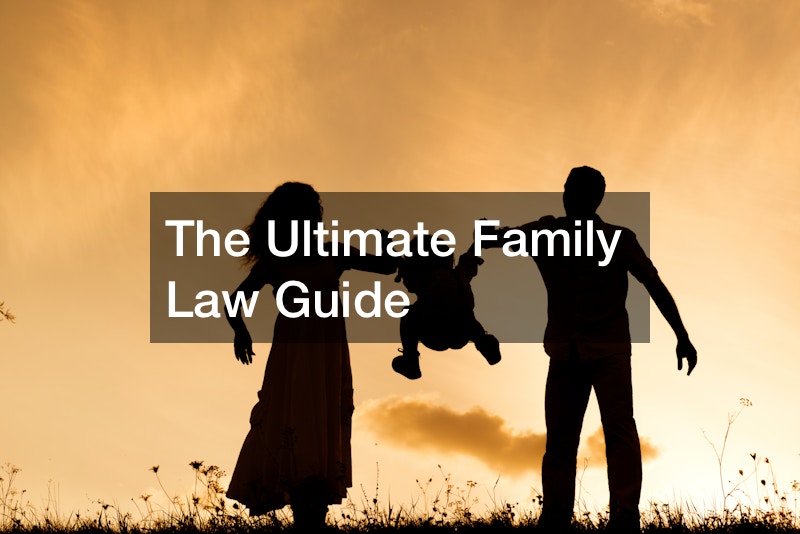

If You are the victim of domestic abuse, you need someone to stand up for you.. You are likely to feel overwhelmed by the implications of the abuser’s actions, so you need a professional who can see the legal aspects of your situation. Family attorneys are experienced in navigating the legal aspects of a domestic violence case.

Confronting your abuser can take courage. Many people who have been abused feel as though they may have played a part in what happened. By hiring a family lawyer, you will have someone who can present you with the legal truth and allow you to make choices based on that truth. Your lawyer can explain every step in the divorce process to you and will help you to complete the necessary paperwork.
One of the necessary steps will be to press charges for domestic violence. Your attorney can help you to gather proof of domestic violence, such as medical records and the testimony of witnesses. According to the Hotline, courts will value the testimony of third-party witnesses such as law enforcement officers. If necessary, your lawyer can hire a domestic abuse expert to testify at the trial to help verify your claim.
Family law covers a lot of family and civil issues, so it’s natural to be confused about the details surrounding it. In this case, you ought to do thorough research, especially if you’re looking for a special professional. The best family lawyers may be those who have specialized in a particular field. If you’d like to find a good one, check family law attorney websites to learn as much as you can about the values that various professionals have.
When you have this information, you may know how to choose a family law attorney. That’s because you’ll have a good idea of some questions you need to ask each professional to ensure that your choice is the right one for you. This is true for both sound family law and private family law, which may be foreign to someone who’s never needed the services of either before.
Once you know what you need to look for, interview a few experts and also have a look at the reviews left for their services, if any. If possible, you can give some of the people who’ve worked with the professional you want to hire a call. If they sound genuine and tell you they got the help they needed, then go ahead and hire the lawyer.

Family law includes a great many types of law. There are so many different types of cases that it’s important to know what kind of lawyer you’re looking for. A lawyer for personal injury law will be an expert on getting settlements for injuries. You may look for an injury lawyer by looking at the 2019 us news law school rankings and which schools lawyers in your area went to. The best employment law programs are what you need to look at if you have a legal case concerning employment.
You might look up law related news articles to make sure that you are an educated consumer about the type of law you’re seeking council for. There are also plenty of legal books online that you can look at to make your determination about who to hire as well as to educate yourself on legal concepts. You won’t learn as much as if you were in law school graduate programs, but you can get a good feel for the major laws in that subject category. Then, you can intelligently talk to your lawyer about the kind of help you need and whether having a lawyer would be a good idea for your legal problem.
Family matters are usually considered one of the most private aspects of life. For the most part, they can remain private with people all around you respecting that privacy. However, some of the more complicated aspects of family life need the help of lawyers and a legal court. Processes like divorce, adoption, and custody are highly personal but also inextricably tied to the legal system. Without the help of a lawyer, the average person may not be able to wade through the legal side of these processes to get their personal lives in order.
To help families navigate the legal system, a field of law known as family law exists. In this field, lawyers aren’t dealing with criminal cases or charges and there typically isn’t a clear-cut defendant and plaintiff. Oftentimes lawyers don’t even go to court in a family law case and if they do there will likely only be a judge and no jury. To understand family law and the many different facets of the field, let’s dive into this family law guide.
What Falls Under Family Law?
As mentioned above, “family law” refers to regulations, rules, and court procedures that involve the family unit. This means that legal matters and civil procedures that involve family members’ custodial rights, financial responsibilities, eligibility, and other obligations typically fall under the umbrella of family law. In a family law guide, you would see these topics covered:
- Marriage and living together: Marriage may be a celebration of love and commitment, but it is also a legal matter. State laws govern the eligibility requirements for marriage, such as age and gender. They also govern legal partnerships other than a marriage that a couple may want to pursue.
- Adoption and foster care: There tend to be many legal considerations when it comes to adopting or fostering a child that you will need a lawyer for. The other side of this legal matter, putting a child up for adoption or entering them into the foster care system, also requires professional legal help.
- Divorce and alimony: A divorce, or a dissolution of marriage, happens through a court order. The former spouses have the choice of using lawyers. They likely will involve lawyers if alimony is involved, which is financial support given from one spouse to the other as ordered by the court.
- Child support and custody: After a divorce, parents often need to go to court to determine what is in the best interests of the children in terms of financial support and living arrangements.
- Parental liability and emancipation: As children are minors, parents are usually liable for the actions of their children. However, a child can become “emancipated” and gain the ability to live apart from their parents if they can prove their maturity.
- Reproductive rights: State laws govern birth control, abortion, artificial conception, and other reproductive rights. These rights fall under family law and can change often.
Family law can also cover child abuse and domestic violence. Although they are criminal matters and may involve the more common aspects of a criminal case, such as a jury, these cases often raise legal issues like custody that affect the family.
When Do You Need a Family Law Attorney?
There is no family law guide that perfectly fits every situation and circumstance. What works for one couple going through a divorce may be completely wrong for another. Whether or not you need a family law attorney depends on many factors unique to your situation. For instance, many marriages won’t require the help of an attorney at all. However, if one person is asking the other to sign a prenuptial agreement, they will probably need an attorney to navigate this legal document.
In general, you should contact a family attorney if you are dealing with a divorce, child support, custody, or adoption. Even if you think the process will go smoothly without a lawyer, having the help of a professional in the field can ensure that you do all of the complicated paperwork correctly and don’t skip over anything that could complicate the process.
Many lawyers will offer free initial consultations. This can allow you to speak with a family law attorney and figure out whether you need their services before committing to hiring one. When in doubt, speaking with experienced attorneys is a good idea for any of these family law matters. As each of these matters has its own rules and guidelines, let’s take a deeper look in this family law guide at a few of the most common types of family law.
Divorce
When you get married, you don’t want to consider the possibility of divorce. Unfortunately, about 827,000 divorces happen every year and you can bet that those couples never considered that possibility either when they tied the knot. While going through a divorce is a highly emotional process, it is a legal one at its core. The divorce process is meant to separate a couple’s mutual belongings, dissolve their union in the eyes of the law, and ensure that they can walk away at the end of it as two individuals who are as unentwined as possible.
The exact steps in a divorce will depend on your unique situation, as will almost everything else in this family law guide. In general, the first step in the divorce process is to consider where you will file for divorce. Typically, this is in the county and state where both or one of you live. You’ll need to figure out if you meet the state’s residency requirements in order to do this.
The next step is filing the divorce petition. To do this, you will need to determine whether you want a “fault” or “no-fault” divorce. Under divorce law, fault divorces require you to showcase wrongdoing by either party, such as situations that involve abuse or adultery. No-fault divorces allow the dissolution of a marriage without proving any type of wrongdoing. If you don’t have children or many assets, you can also choose to get a “summary” divorce, which is typically simpler, faster, and doesn’t involve alimony. If you have many assets or filing for a fault divorce, you’ll want to consult an attorney right away to help you through the process. They will act as your family law guide as you navigate your divorce.
After filing divorce papers at court, you’ll them serve them on your spouse, meaning that another adult physically gives the papers to your spouse. Your spouse will then have an opportunity to answer the divorce petition, allowing them to tell the court what they do and don’t want in the divorce. If you are the one being served divorce papers and having to answer the petition, this would be the time to consult divorce attorneys, especially if there are disagreements about how to proceed with children or property.
You, your spouse, and your lawyers will then start the process of settling the divorce. Many divorces will settle with an agreement that both spouses can live with. Some states require professional mediation to help determine a property settlement and custody plan that all parties can follow. Even if your state doesn’t require it, mediation can be a helpful way to iron out disputes. If you can’t come to an agreement and your case goes to trial, you will need to present evidence and possible witness testimony to the judge so that they can decide on a settlement for you.
Child Support and Custody
Next in the family law guide is child support and custody. Although these matters are also tied into the divorce process, they can require attorneys who specialize in child support and custody. These matters can also come up long after you’ve finalized your divorce if one parent is neglecting to pay the promised child support, one parent suspects that the other is using the child support in questionable ways, or a change in circumstance has required you to revisit the custody or support agreement.
If you’re seeking child support, you have a couple of options. One is to stay out of the court and make a child support agreement with your co-parent through mediation or informal negotiations. The other option is to use a court order. In either case, you will need to establish legal fatherhood or paternity, know where the other parent is, and use your state’s guidelines to figure out the right amount for child support.
Under most family law guides, you will owe an ex-spouse child support when you have a child who is primarily housed at their home. If you ignore paying child support, you can face serious consequences. If your financial situation changes and you can’t afford the amount you’re ordered to pay, you can seek to modify the child support you owe the other parent. Having an attorney help you through modifying, enforcing, or obtaining child support is a great option, as it can be a stressful and complicated process.
Figuring out child custody can also be a difficult process, particularly if there is animosity between you and the other parent. You’ll first need to determine which type of custody you want. Joint custody is when both parents share the living arrangements and parental rights of their child. Sole custody is when one parent or guardian has legal and physical custody over a child. Courts typically prefer joint custody but will grant sole custody when it is in the child’s best interest.
Family courts decide the best interests of a child based on a number of factors. Under child custody law, these factors typically include the emotional bond between the child and both parents, the parents’ ability and desire to care for the child, and the necessary adjustment if the child has to move to a new area. If the child is old enough, the court will also take their wishes into account. Having a lawyer in custody cases is essential, as they will be able to advocate on your behalf and present the best argument for your custody wishes.
Adoption
The last major area we’ll cover in this family law guide is adoption. As this involves the lives of children, this can be a complicated legal subject. It is also highly emotional for everyone involved. Because of its many complexities, it’s best that you understand how adoption works before you dive into the process so that you can make the appropriate decisions for you and your family.
If you’ve decided to adopt, you’ll first need to prepare for a home study. Required in every state, this process involves a series of interviews and home visits that evaluate the adoptive family’s suitability, educate and prepare the prospective parents, and correctly place children in the right environment. Once you’re approved to adopt, the next step is to locate a child who is available for adoption. Many families go through licensed adoption agencies for this part of the process, but you can also consult with friends, relatives, or doctors to see if there is a child who needs a family. You could also volunteer to be a foster parent through a government or charity organization, as this allows you and the child to get to know one another before going through the adoption process.
No matter which avenue you take for adoption, an adoption court must handle and approve all adoptions. This allows for proper notice for all parties involved and ensures that you’ve met all legal requirements. Working with an adoption attorney in this step is advisable, as they can help ensure that you aren’t missing any important paperwork or requirements to finalize the adoption. In general, the court judge will use the “best interests of the child” standard to decide whether to approve the adoption.
Working with an experienced attorney is also a good idea if you are pursuing an open adoption, which is when adoptive parents meet and potentially stay in touch with birth parents. By working with an attorney, you will know exactly what your rights are as an adoptive parent. If you are the one giving a child for adoption, you should also have an attorney on your side. They will be able to advise you of any rights you have as a birth parent and guide you through the potential of an open adoption.
If you are a same-sex couple looking to adopt a child, any family law guide will advise you to work with an attorney as early in the process as possible. Legal rights for same-sex couples may be expanding greatly, but certain states still don’t guarantee same-sex couples the right to adopt. Some states prohibit it outright and others are silent on the issue. If you’re considering adoption, become familiar with the law and policies in your state and consult an experienced attorney to avoid complications.
Without a doubt, family law is complicated. Those who practice in the field need to maintain the careful balancing act of following all legal regulations while taking into account the highly emotional and personal nature of family law cases. By following this family law guide, you can find the legal support that achieves this balance well.





